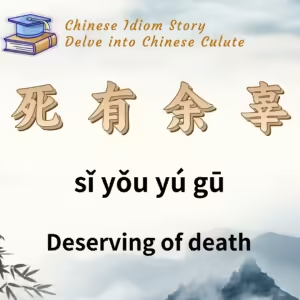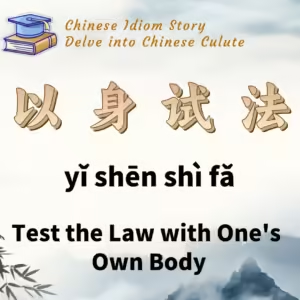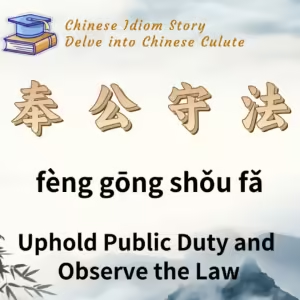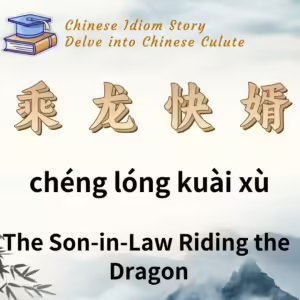
Chinese Idiom: 死有余辜 (Si You Yu Gu)
English Translation: Deserving of death
pīn yīn: sǐ yǒu yú gū
Idiom Meaning: Describes someone who has committed heinous crimes to such an extent that even death cannot compensate for their wrongdoings.
Historical Source: “Book of Han” (《汉书·路温舒传》).
Idiom Story:
During the Western Han Dynasty, there was a man named Lu Wenshu who was passionate about studying the law from a young age. He diligently mastered a vast amount of historical knowledge and became well-acquainted with the legal statutes of his time. Having served as a jailer and a prison officer, he was well aware of the dark realities of the prison system.
Not long after Emperor Xuan ascended to the throne, Lu Wenshu submitted a memorial titled “On Promoting Virtue and Reducing Punishments” to the emperor. In this document, he used historical examples to advocate for benevolent governance and criticized the brutal actions of jailers. He urged Emperor Xuan to promote compassion and to lessen the severity of punishments.
In his memorial, Lu Wenshu pointed out that jailers often inflicted cruel tortures on prisoners, who were unable to withstand the beatings and would fabricate confessions. The interrogators would believe these false confessions without question and would concoct various schemes to convince their superiors that the charges were valid. He stated that even a just man like Jiu Yao would think that a death sentence could not adequately address the crimes committed (the original text states, “even Jiu Yao would think that death is still deserved”).
Impressed by Lu Wenshu’s insights and his call for reform, Emperor Xuan praised his memorial and soon promoted him to a higher position.
This story emphasizes the concept of “死有余辜,” underscoring the idea that some criminals are so wicked that their punishments cannot balance the severity of their misdeeds.






